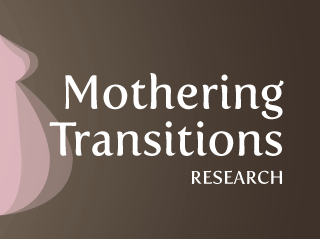A Randomized Controlled Trial to Evaluate the Effectiveness of Telephone-Based Interpersonal Psychotherapy for the Treatment of Postpartum Depression
Objective: To evaluate the effect of telephone-based interpersonal psychotherapy (IPT) for the treatment of postpartum depression.
Design Overview: The proposed research is a randomized controlled trial with stratification based on depression severity and province (Newfoundland, Ontario, Manitoba, Saskatchewan, and Alberta). Using the Edinburgh Postnatal Depression Scale (EPDS), all mothers between 2 and 24 weeks postpartum identified with depressive symptomatology (EPDS > 12) will be briefly introduced to the study by participating public health nurses and referred to the trial coordinating center for a detailed explanation. Following informed consent procedures, the trial coordinator will randomize all eligible mothers diagnosed with major depression (N = 240) to either a control (usual postpartum care) or intervention (telephone-based IPT) group. Randomization will be conducted using a web-based randomization service. Mothers allocated to the intervention group will receive the standard community postpartum services for mothers with PPD in addition to receiving telephone-based IPT provided by a trained nurse. The IPT-nurse will contact the new mother within 48 to 72 hours of trial enrolment and then weekly for 12 weeks. Mothers allocated to the control group will not receive IPT but will have access to the standard community postpartum services for mothers with PPD. A research nurse blinded to group allocation will telephone all study participants at 12, 24, and 36 weeks post-randomization to determine depressive symptomatology and other various outcomes. Immediately post-treatment (i.e., 12 weeks post-randomization), mothers in the intervention group will evaluate their IPT experience with the trial coordinator.
Relevance: The results from this trial will make substantive contributions in six areas: (1) advance the body of knowledge concerning the effectiveness of IPT for the treatment of PPD; (2) develop our understanding of the advantages and disadvantages of using trained nurses in the delivery of IPT; (3) examine the utility of providing IPT via telephone; (4) provide an economic evaluation of an IPT intervention; (5) investigate the utility of identifying clinically depressed mothers using the EPDS in general public health nursing practice in a Canadian context; and (6) present valuable information regarding the prevalence of PPD among a rural and remote Canadian mothers.
